Published Jun 1, 2023
Odo and the Albino
For one fan, the constable's differences were incredibly familiar.
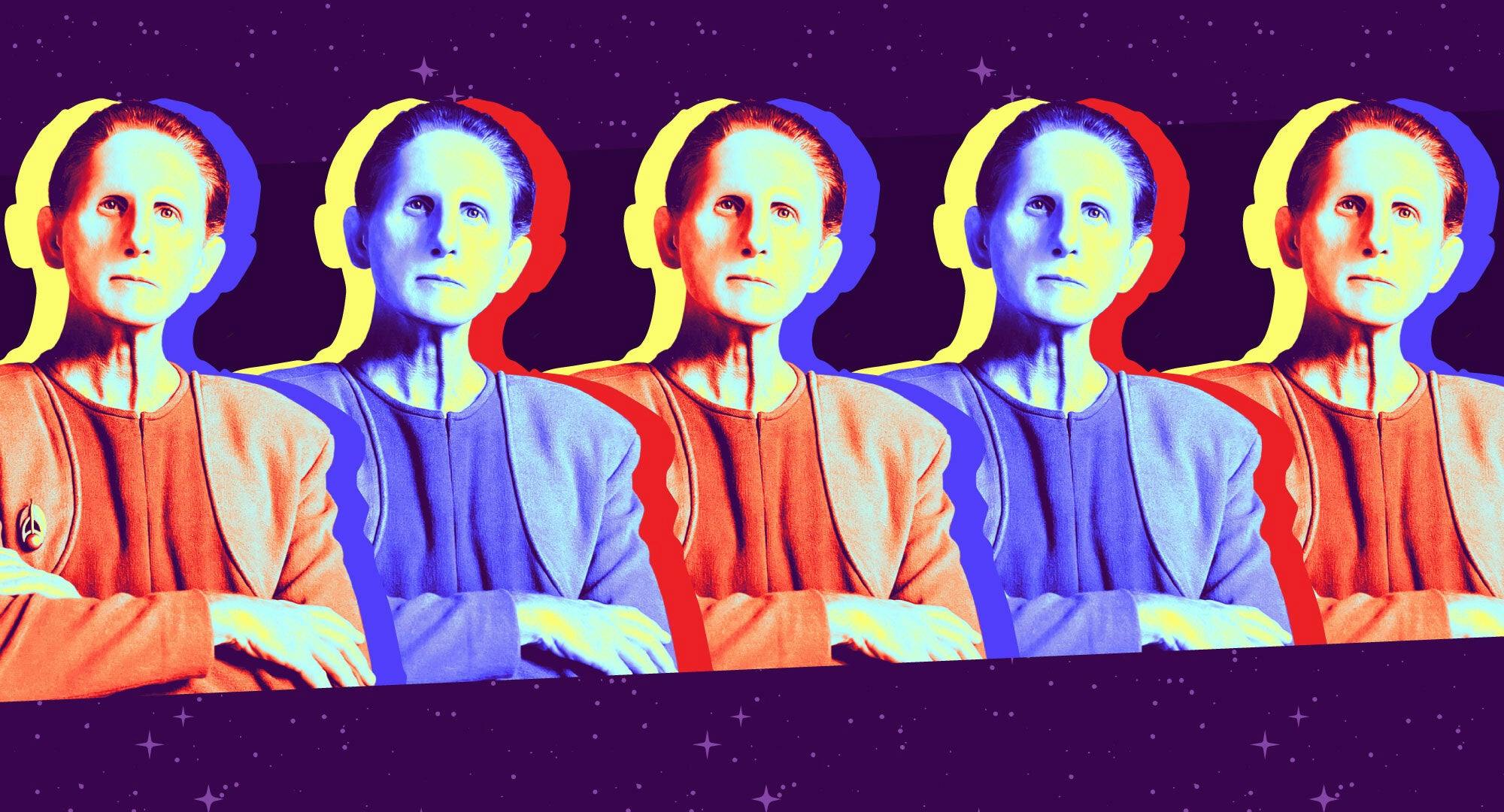
StarTrek.com
I came into Star Trek: The Next Generation in the middle of its run, and instantly fell in love with the universe that Gene Roddenberry created. But, from the beginning, Star Trek: Deep Space Nine was my Star Trek. Through the first showing of the orbs, the amazing character growth, until the end of Sisko’s magnificent journey, I felt attached to this crew and their stories. It wasn’t just the amazing cast, deeper themes, and clever writing that tethered me to the show, but a personal connection as well.
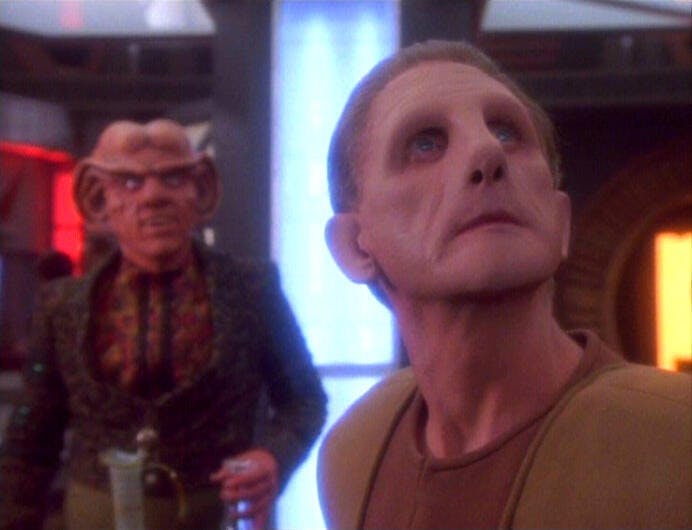
StarTrek.com
As someone with albinism — a genetic mutation that results in a lack of pigmentation, where the subject has white hair, pale skin, and light-sensitive eyes — I related deeply to the shapeshifter, Odo. In the beginning, Constable Odo was an oddity in the Star Trek universe; a stern curmudgeon, distant, and visibly different. Aside from the alien abilities, every detail the show revealed about the Changelings over the seasons further strengthened my bond with the grouchy security chief.
Odo’s driving goal from the first episode is to find out more about himself, his past, where he came from. I always knew I was different from a young age. My mother raised me alone for the most part, and she made sure I knew everything she did about my condition. Mom wanted me to be prepared because she knew how cruel others could be. Her explanations didn’t sate my quizzical nature or my desire to find another reason why I was this way. I went through several far-fetched theories and even, for awhile, landed on the fact that I must have been adopted for a while. That one required a rather lengthy talk.
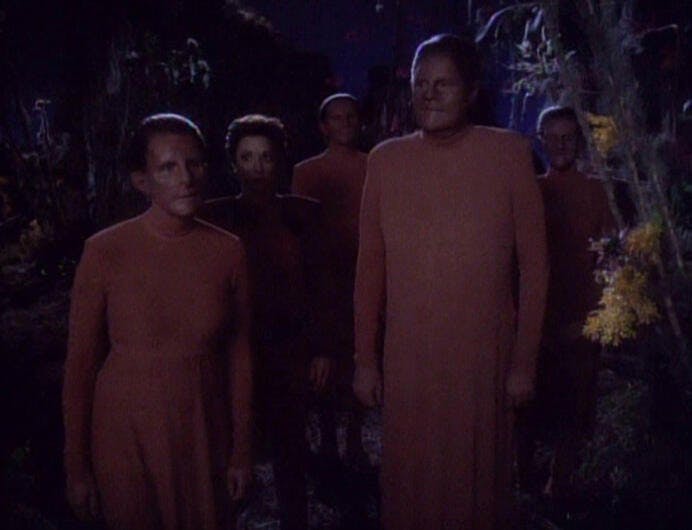
StarTrek.com
Even better than learning more about where he came from, Odo desired to meet others like him. I remember asking my mother why there weren’t others like me at my school. She always said they existed; I’d just never seen them. It wasn’t long before a meeting was arranged for me to sit down with someone else with albinism. The idea was that if I spoke with someone who had gone through the same things I was, it would make things easier. He was an older man though. When he tried to tell me everything was going to be alright, I couldn’t help but think he was past what I was experiencing, detached from the social pressures of younger society. Mostly, I just remember him having large patches of glistening white hair on his hands and I was so afraid I would look like a silver Wolfman at an older age.
Odo had the same issue, in a way, still feeling separated from those like him. The Changelings lived a separate life in their own colony while having no idea about the life he endured a quadrant away. When they finally did meet, his people weren’t expecting him, and their different lived experiences rendered Odo at odds with those he wanted to call family. Similarly, even when I did finally meet others with my condition who were closer to my age, it was always awkward. I would say dumb things, ask questions I knew the answers to, just to hear them repeat certain things I felt, so I knew it wasn’t just me. Perhaps it was nerves or concern that the only thing we had linking us was our lack of pigment.
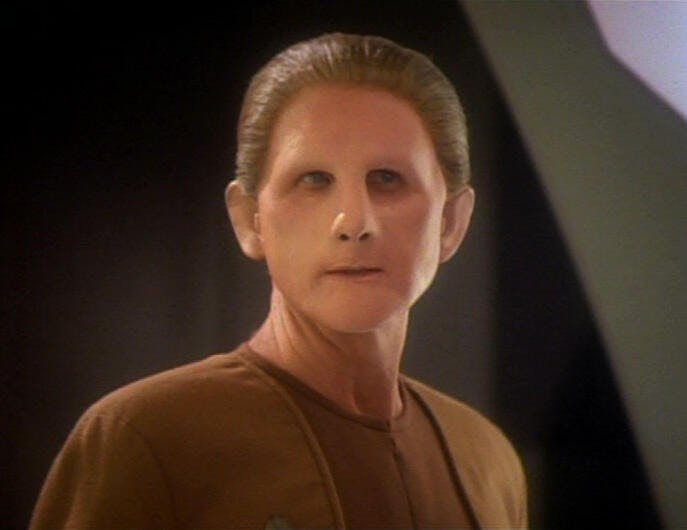
StarTrek.com
Much like I was called a ghost, Casper, Snow White, Powder and more, Odo was often referred to as "shapeshifter" rather than his name or position, and "freak" when people were angry or scared of him. If not that, then he was made to be a spectacle, constantly prodded to do a Cardassian neck trick. Both Odo and I make an easy target because we stand out, but the creators wanted his visual differences to be unsettling. The DS9show bible lists Odo as a sort of Elephant Man, “a source of curiosity and humor.” It is no wonder he resents being in a humanoid form. I often felt like I didn’t truly belong.
Even when people try to be respectful or simply non-aggressive with their questions, there is always an uncomfortable moment that points out the differences. For me, it was always someone wanting to know if I was white or Black once they figured out I was an albino, or asking if I could dye my hair and tan. We both get questions about our hair, like when Odo had to explain that his was not "real," but more a part of him. The constable often has to explain that parts of him are fake, how he doesn’t eat, and that need to revert to his liquid state every 16 hours.
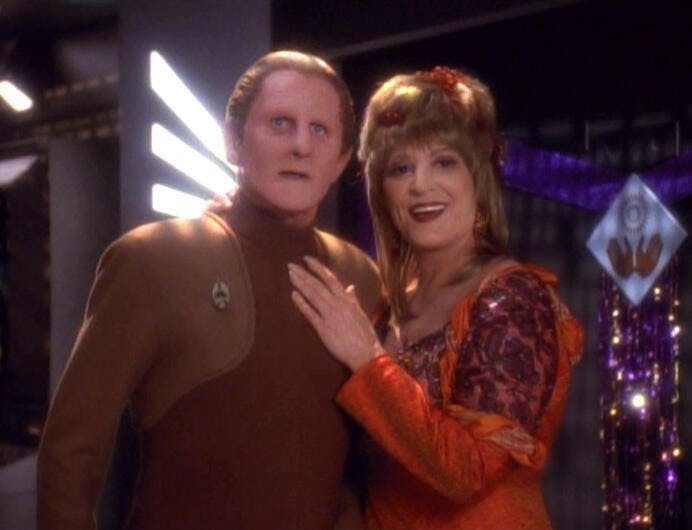
StarTrek.com
Things like these cause problems in relationships (depending on the people of course). Odo had a couple of relationships, but aside from his romance with Major Kira, his encounters with Ambassador Lwaxana Troi stand out most. In Season One’s “The Forsaken,” Troi took a fascination with Odo sexually because he was different, expressing her interest with "I've never been with a shapeshifter." I’ve had the same conversation, and the same discomforting experience of realizing that someone’s attraction was completely based off my uniqueness and the idea of checking an item off a sexual bucket list. I think the worst may have been when a prospective lover inquired — with total seriousness — if I would glow in the dark when the lights were out. To be fair, I’m sure several fans have pondered if Odo’s abilities enhanced his romantic time with Kira.
Familial relationships can be even trickier. It can be a bit jarring to realize that a close relative knows very little about my condition, or how it affects my day-to-day life. My biological father passed when I was a year old and I spent much of my youth searching for that missing influence. Odo doesn’t have a father in most senses, but rather a man who was assigned to study him. That surrogate father pushed him to imitate humanoids and become something he was not. I didn’t have that sort of influence exactly but often felt pressured into normal activities that my albinism made difficult for me.
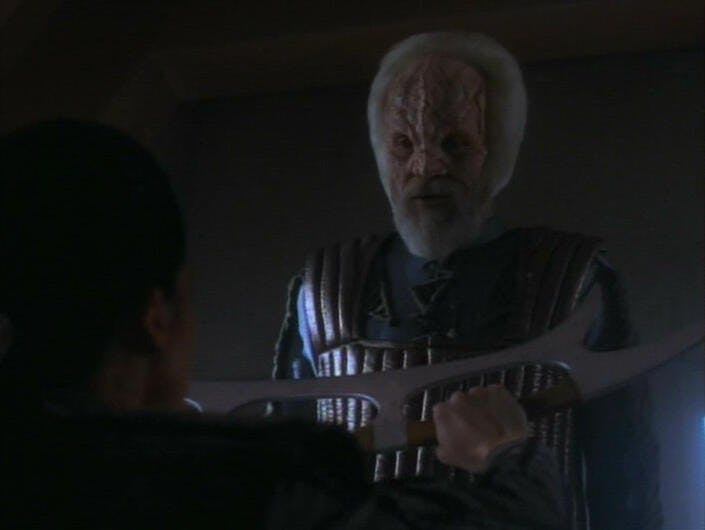
StarTrek.com
Many of the comparisons were never exact, but I often found insight in Odo’s struggles and Deep Space Nine as a whole. It was comfortable science fiction, even when they had an episode, "Blood Oath," where Dax and the Klingons hunt down and kill and enemy known bluntly as The Albino. Still, I felt like the show was not only entertaining but also helped me connect personally.
Without Odo that may not have happened. With the Changeling as a proxy, I was able to feel that my curiosities, insecurities, and cynicism toward society were represented in an optimistic vision of the future.
In the end, Deep Space Nine wasn’t just my favorite Star Trek series; it’s my story.
Star Trek Day 2020 | Honoring Aron Eisenberg And René Auberjonois
This article was originally published on August 21, 2019.





